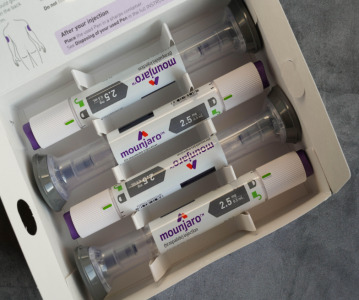Promacta receives FDA Breakthrough Therapy designation for first-line use in severe aplastic anemia
.png)
Data supporting designation showed over half of treatment-naïve SAA patients achieved complete response with Promacta when given with standard immunosuppressive therapy, with overall response rate of 85%.
FDA has granted Breakthrough Therapy designation to Novartis's Promacta (eltrombopag) for use in combination with standard immunosuppressive therapy for the treatment of patients with severe aplastic anemia (SAA) as a first-line therapy. Promacta, which is marketed as Revoladex in most countries outside the US, is already approved as a second-line therapy in the refractory setting in SAA. Promacta is also approved for adults and children with chronic immune thrombocytopenia (ITP), for patients who are refractory to other treatments.
SAA is a rare blood disorder in which a patient's bone marrow fails to produce enough red blood cells, white blood cells and platelets. As a result, people living with this serious disease may experience debilitating symptoms and complications, such as fatigue, trouble breathing, recurring infections and abnormal bruising or bleeding that can limit their daily activities. Up to one-third of patients do not respond to current therapies or relapse, causing symptoms to return.
"Promacta is a promising medicine that, if approved for first-line use in severe aplastic anemia, may redefine the standard of care for patients with this rare and serious bone marrow condition," said Samit Hirawat, Head, Novartis Oncology Global Drug Development. "We will continue to work closely with the FDA to make Promacta available to patients with SAA who are new to treatment as soon as possible."
Novartis' analysis of research conducted by the National Heart, Lung and Blood Institute (NHLBI) of the National Institutes of Health (NIH) showed that over half (52%) of patients with treatment-naïve SAA achieved complete response at 6 months when treated with Promacta at the initiation of and concurrently with standard immunosuppressive treatment. The overall response rate was 85%.
Related News
-
News The next 15 drugs up for negotiation with Medicare include several blockbusters
By now, everyone is quite familiar with the drug price negotiations taking place between drug companies and the Centres for Medicare & Medicaid Services (CMS) in the USA as part of measures being taken to reduce the cost of drugs for patients, to make ... -
News PSCI Welcomes Delpharm, Samsung Biologics, and Suven as First Supplier Partners
The pharmaceutical industry continues to evolve with an increasing focus on responsible sourcing, sustainability, and collaboration across the supply chain. Under a new model to recognise suppliers within the pharmaceutical and healthcare industry that... -
News Drug prices agreed upon as part of the US Inflation Reduction Act
The Inflation Reduction Act brought into constitution by the Biden administation in 2022, which proposed a drug price negotiation between the government and pharmaceutical companies, has reached it's first agreement. -
News Eisai Alzheimer’s drug authorised in UK but still faces obstacles
In partnership with BioArctic AB, pharmaceutical company Eisai has been granted Marketing Authorisation by the Medicines and Healthcare products Regulatory Agency (MHRA) for its Alzheimer’s disease drug product Leqembi. -
News Eli Lilly's weight loss drugs removed from the FDA's shortage list
The US FDA have recently updated their drug shortage list. The recently released list shows that all dosage forms of Eli Lilly's weight-loss drug Zepbound and their diabetes drug Mounjaro are now available. -
News Global advancements in the diagnosis and treatment of rare diseases: Rare Disease Day 2024
Rare Diseases Day is celebrated on the 29th February 2024 and represents the plight of rare disease patients to gain diagnosis and access to suitable treatment. -
News Pharmaceutical industry supports COP28 health stance in joint statement
As COP28 takes place over this week in Dubai, UAE, several bodies in the pharmaceutical and health industries have come together to announce support of key movements in sustainability in the sector, and to recognise sustainability as a health issue.&nb... -
News Biden backs Cold-War measures to shore-up medical supply chains
In a recent strategy to combat rising inflation and the cost of living crisis, President Joe Biden has invoked a Cold War-era act to increase investment in a selection of medicines and supplies.
Recently Visited
Position your company at the heart of the global Pharma industry with a CPHI Online membership
-
Your products and solutions visible to thousands of visitors within the largest Pharma marketplace
-
Generate high-quality, engaged leads for your business, all year round
-
Promote your business as the industry’s thought-leader by hosting your reports, brochures and videos within your profile
-
Your company’s profile boosted at all participating CPHI events
-
An easy-to-use platform with a detailed dashboard showing your leads and performance



.png)



